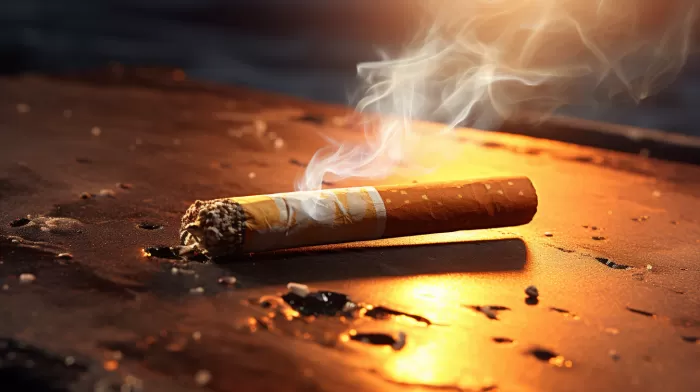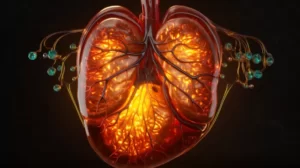It may come as no surprise that smoking is one of the leading causes of lung cancer, but did you know that there is actually a specific time of the day that can drastically increase your risk? In fact, lighting up that first cigarette in the early hours of the morning can significantly raise your chances of developing this life-threatening disease.
The Morning Cigarette: A Dangerous Habit
Researchers at the National Cancer Institute conducted a study on over 3,000 smokers, focusing on their morning rituals and found astonishing results. Of these participants, around 1,800 were already diagnosed with lung cancer. Upon further investigations, it was discovered that the individuals with cancer generally began smoking earlier in the morning as compared to those who had (so far) avoided the disease. The conclusion was clear: waiting just an hour after waking up to have your first cigarette of the day can reduce your lung cancer risk.
The study focused on the time to first cigarette (TTFC) of the participants and found a strong correlation between early morning smoking and increased lung cancer risk. Assessing TTFC not only helps to predict lung cancer risk but can also be highly valuable for lung cancer screening and smoking cessation programs.
Why is the Morning Cigarette More Dangerous?
There are several reasons why smoking early in the morning increases the risk of lung cancer:
- Increased Nicotine and Tar Exposure: Your body’s metabolism is at its highest rate right after waking up, which makes the nicotine and harmful substances in tar more readily absorbed by your body.
-
Decreased Mucociliary Clearance: In the morning, the body’s mucus clearning process (mucociliary clearance) is slower. This means that smoke residue and carcinogens can sit in your lungs for a longer period, increasing the risk of lung cancer.
-
Higher Carcinogen Concentrations: By smoking the first cigarette so close to waking, the morning smoker inhales more carcinogens early in the day when there hasn’t been enough time for the body to detoxify from the previous day’s smoking.
-
Higher Nicotine Dependence: Those who need a cigarette immediately after waking up tend to be more addicted to nicotine. This leads to higher levels of nicotine consumption throughout the day and exposes them to higher cancer risks.
How to Reduce Your Risk
While quitting smoking completely is the best way to eliminate the risk of lung cancer, there are small steps you can take to begin with:
- Delay Your First Cigarette: Proactively try to postpone your first cigarette by setting small goals. Initially, aim for waiting a few minutes and gradually increase the waiting time. Working your way up to an hour or more after waking up can significantly lower your lung cancer risk.
-
Cut Down Your Daily Intake: Gradually decrease the number of cigarettes you smoke each day. Even a small reduction can make a big difference in your overall risk.
-
Avoid Smoking Areas: Limit your exposure to second-hand smoke by avoiding smoking areas and discussions that trigger the urge to light up.
-
Chew on Alternatives: Distract your oral fixation with other items such as sugar-free gum, hard candies or raw vegetables.
-
Stay Active: Engage in physical activities to help reduce cravings, improve lung capacity, and boost your overall health.
-
Seek Support: Reach out to friends, family, or health professionals for encouragement during your journey to quit smoking, or enroll in a smoking cessation program.
The Bottom Line
By being aware of the increased risks associated with early morning smoking, you can take the initiative to make changes in your daily routine to improve your health. While nothing can guarantee a reduced risk of lung cancer, every little change makes a difference, and quitting smoking remains the best way to protect your health.



![8 Simple Rules to Refresh Your Body with a Healthy Cleanse [See Pictures]](https://naturalhealthreserve.com/wp-content/uploads/2024/01/8-rules-healthy-cleanse-slideshow-300x168.webp)